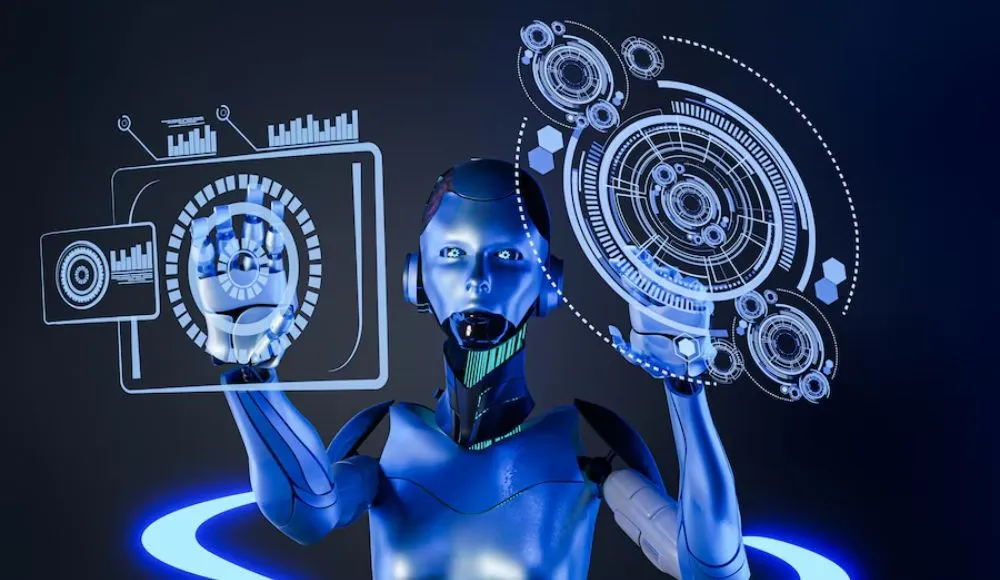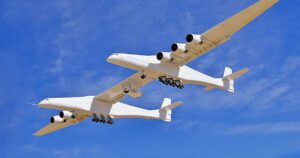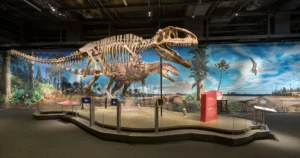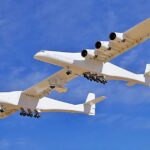Digital progress has made AI technology an established reality that replaces all concepts about a future application. organizations that use AI for operational efficiency and productivity betterment trigger major changes within their workforce. Modern business roles are transforming while innovative multiskilled positions form where technical expertise meets human innovative capacity.
The implementation of AI systems both accelerates operations and triggers job security concerns in addition to ethical usage concerns about the future workplace skills. The work environment of tomorrow requires humans to transform their job skills through technological cooperation rather than facing machine automation of jobs. This article investigates how Artificial Intelligence devises the future workspace alongside the required abilities and effective ways for both people and groups to embrace upcoming trends.
Understanding AI Technology in the Workplace
Technology based on AI enables machines along with software systems to conduct operations which demand human intelligence for tasks including learning and problem-solving and decision-making. Technological systems at work use AI to perform repetitive functions and help analyze massive datasets as well as supply real-time analytics.
Bots for customer service operations maintain continuous availability to answer questions whereas HR platforms use smart filters to identify the best candidates from job applications. AI allows teams to dedicate their attention to strategic and creative work after humans have released themselves from regular tasks. The workplace transformation requires employees to adopt updated thinking about human-AI collaboration alongside developing expanded knowledge capabilities.
Job Automation: What’s Changing and What’s Not
AI technology performs automated tasks on various manual positions yet it does not necessarily mean jobs operated by humans will disappear entirely. Human beings continue to control creative jobs alongside those that require emotional intelligence and critical thinking abilities. The system can perform automated data entry functions yet it lacks the capability to generate professional original marketing campaigns.
The automation of repetitive work in finance, healthcare and logistics sectors presupposes human supervision for critical functions. Workers need to set their sights on roles that need human dexterity along with judgment expertise. The primary function of artificial intelligence operates through augmentation which enhances performance levels in humans instead of displacing human workers.
AI Technology and Remote Work
The combination of virtual meeting features includes transcription support as well as sentiment analysis and real-time translation capabilities that all rely on AI technology. Through AI tools remote workers gain visibility into productivity levels and get individual task proposals while their workloads receive skilled assistance.
The combined operation results in maximum efficiency together with adaptable schemes. AI developments will create progressively dynamic work environments that deliver personalized freedom to workers without decreasing performance levels or collaboration quality.
How AI Technology Is Creating New Careers
AI technologies do not only eliminate positions but also establish new employment opportunities.The development of AI technology will generate additional professional positions that include responsibilities in algorithm training along with system monitoring and digital transformation.
The emerging careers need workers to combine their technical understanding with specific industry insights. Both educational facilities provide AI-specific curriculum through new programs and certifications while businesses allocate funds to train their employees. Organizations for the future will reward adaptable candidates who remain open to continuous educational pursuits.
Preparing for the Future: What Individuals and Companies Can Do
AI technologies do not only eliminate positions but also establish new employment opportunities. The emergence of career roles such as AI ethicist alongside data strategist and machine learning engineer and automation consultant happened only in the previous decade. Organizations for the future will reward adaptable candidates who remain open to continuous educational pursuits.
Modern ways of living and working as well as human-world interactions transform through Artificial Intelligence (AI). AI represents the development of programming methods which allow computers to execute tasks generally handled by human cognitiveness such as learning and solving problems along with language comprehension and making decisions.
Upon its continuous advancement the technology produces major prospects and essential ethical issues regarding private information protection and employment elimination and machine functions in social structures.
FAQs
Does artificial intelligence technology plan to terminate every employment position?
The implementation of AI automation produces task elimination yet generates new work roles together with improved job performance capabilities.
What abilities will prepare me for the AI revolutionized labor market?
People should develop digital skills together with data analysis abilities while building emotional competency and creative talents and maintaining continuous learning habits.
Businesses need to develop strategies for adapting to artificial intelligence programming as it changes the workplace?
Companies should invest in ethical AI utilization combined with employee upgrading along with encouraging an innovative workplace culture.
Conclusion
The technological advancements of AI exceed being a temporary fashion because they bring profound transformations to the workplace of the future. Through automation AI transforms industries yet it enables both new professional prospects that combine with innovative modern working methods.
Implementing changes through skill-based learning and ethical conduct enables people and institutions to transform AI challenges into new opportunities. Work involving human operators teamed up with machines creates the path toward constructing a smarter more efficient world during the forthcoming years.











